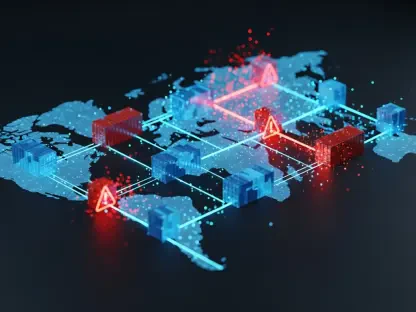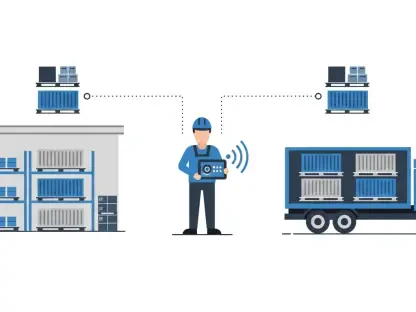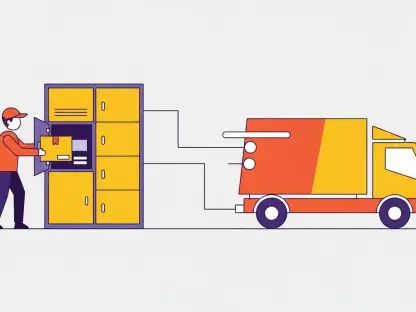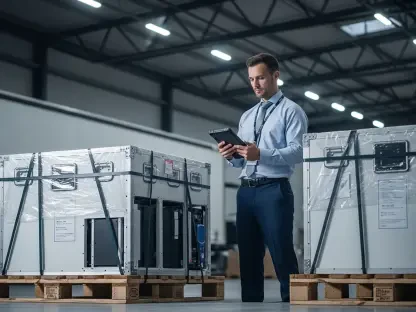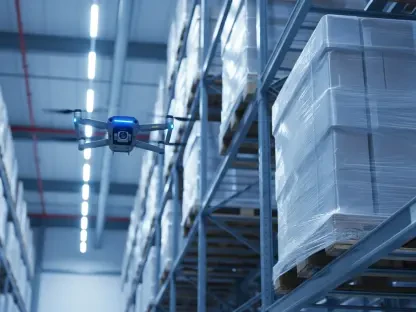In today’s dynamic e-commerce landscape, securing logistics operations has never been more critical. Companies are increasingly reliant on sophisticated technologies to maintain high efficiency and meet customer demand. Within such an environment, the role of an IT/OT Security Engineer becomes pivotal. This article explores the multifaceted responsibilities, skill requirements, and the significant impact of this role within a leading e-commerce logistics firm based in Utrecht, Netherlands.
Technology-driven logistics environments demand a holistic approach to security, encompassing both Information Technology (IT) and Operational Technology (OT) systems. The IT/OT Security Engineer is entrusted with the critical responsibility of fortifying these systems against potential threats to ensure seamless and uninterrupted logistics operations. This involves safeguarding advanced technologies like smart robots and warehouse management systems, which are integral to optimizing logistics processes and maintaining high efficiency. Without rigorous security measures, these sophisticated systems are vulnerable to cyber threats, which can disrupt operations and erode customer confidence.
The Backbone of Logistics Security
The primary mission of an IT/OT Security Engineer is to safeguard both Information Technology (IT) and Operational Technology (OT) systems across the entire logistics network. These systems include advanced technologies such as smart robots and warehouse management systems that optimize operations. Amidst this technological landscape, the Security Engineer must ensure these systems are fortified against potential threats, maintaining seamless and uninterrupted logistics operations.
A significant part of this responsibility involves conducting security reviews of network designs. These reviews identify potential vulnerabilities and ensure that security measures are robust enough to mitigate risks. Additionally, the role requires developing and implementing customized security solutions that cater to the specific needs of the logistics environment. This tailored approach helps in balancing security with innovation, ensuring new technologies can be adopted without compromising safety.
Moreover, maintaining high uptime for logistics operations underscores the high stakes involved. The IT/OT Security Engineer’s role is critical in an e-commerce setup as it ensures that the supply chain functions smoothly without any disruptions. A breach or operational downtime can have significant consequences, impacting the company’s service delivery to millions of customers and affecting its reputation. Hence, the importance of a secure and robust IT/OT framework cannot be overstated, making this role indispensable for the company’s success.
Collaborating for Safety
Working in logistics security isn’t an isolated task. The IT/OT Security Engineer collaborates extensively with various teams, including those on the warehouse floors. This collaboration is essential for understanding the operational intricacies and identifying risks that might not be apparent from a purely technical perspective. By working closely with the warehouse teams, the engineer can develop security protocols that are practical and effective in real-world scenarios.
Moreover, being part of a SecOps (Security Operations) team brings an added layer of collaborative synergy. Collaborating within this diverse team enables sharing insights and tackling complex security challenges comprehensively. This collective effort ensures all security measures are well-rounded and provide comprehensive protection for the logistics operations.
Furthermore, the collaborative environment extends beyond internal teams to include external stakeholders, such as technology vendors and security consultants. This engagement broadens the spectrum of knowledge and expertise available to the IT/OT Security Engineer, facilitating the adoption of best practices and innovative security solutions. The collective effort of diverse teams ensures that security protocols are not only technically sound but also practically implementable, aligning with the dynamic needs of logistics operations.
Technological Proficiency and Innovation
In a high-tech logistics setting, an IT/OT Security Engineer must possess a deep understanding of a wide range of technologies. Proficiency in platforms such as Linux, Kubernetes, and Azure is crucial. These technologies are fundamental in achieving the integration of IT and OT systems, making them secure and efficient.
Innovation is at the heart of this role. The logistics landscape is continually evolving, and new technologies such as smart robots are becoming integral to operations. Ensuring these innovations are securely integrated requires not only technical expertise but also a forward-thinking mindset. The IT/OT Security Engineer must stay ahead of technological trends to pre-emptively identify and mitigate new security challenges that these innovations may bring.
Moreover, the convergence of IT and OT systems in logistics underscores the need for a holistic security strategy. The IT/OT Security Engineer must be proficient in both domains to address the unique security challenges associated with integrated systems. This dual competency ensures that security measures are comprehensive, encompassing both digital and operational aspects of the logistics network. By staying at the forefront of technological advancements, the engineer can leverage new tools and methodologies to enhance security and operational efficiency.
High-Stakes Responsibility
Ensuring near 100% uptime for logistics operations is a high-stakes responsibility, reflecting the critical nature of this role. Logistics operations are the backbone of any e-commerce business, supporting millions of customers daily. A security breach or operational downtime can have catastrophic impacts, disrupting the supply chain and eroding customer trust.
This high responsibility underscores the importance of the IT/OT Security Engineer’s work. By maintaining secure and uninterrupted logistics operations, the engineer plays a vital role in the company’s success. The ability to manage this responsibility effectively requires a proactive mindset and a thorough understanding of both IT and OT systems.
Moreover, the role demands meticulous attention to detail and a robust incident response strategy. In the event of a security incident, the IT/OT Security Engineer must act swiftly to mitigate the impact and restore normal operations. This involves not only technical remediation but also effective communication with stakeholders to manage the situation. The high-stakes nature of the role signifies its integral contribution to the company’s resilience and operational stability, reinforcing the critical need for adept professionals in this domain.
Qualifications and Ideal Candidate Profile
The ideal candidate for an IT/OT Security Engineer position should have substantial experience in IT and OT security, preferably in logistics environments. A Bachelor’s or Master’s degree in a relevant field provides a solid educational foundation. Equally important is practical experience and technical expertise, particularly with technologies such as Linux, Kubernetes, and Azure.
Apart from technical skills, a proactive problem-solving mindset and the ability to work collaboratively with diverse teams are essential traits. Candidates who excel in this role are those who can navigate complex security landscapes while fostering a team-oriented approach to problem-solving. This combination of skills and mindset enables them to effectively secure and enhance logistics technology infrastructures.
Furthermore, the role requires strong analytical skills to anticipate and address security challenges proactively. The ability to think critically and implement solutions that align with the company’s operational goals is crucial. The IT/OT Security Engineer must also demonstrate excellent communication skills to effectively collaborate with cross-functional teams and articulate security strategies. This comprehensive skill set ensures that the candidate can contribute meaningfully to the company’s security posture, making them an invaluable asset in safeguarding the logistics network.



